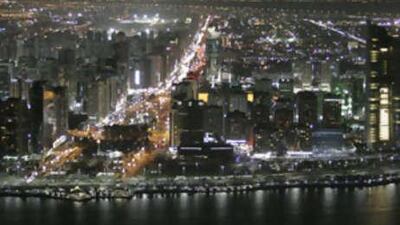At the time of the first post-war energy shock in 1973, a book was published which captured the mood of the moment in recession-hit western economies and laid the foundations for what is now the green movement. "Small is Beautiful" by Fritz Schumacher blasted the notion of "bigger is better", advocating instead the concept of "enoughness". He questioned the traditional wisdom of using economic output to measure human well-being, saying that "the aim ought to be to obtain the maximum amount of well-being with the minimum amount of consumption".
He argued that fossil fuels should be regarded as capital, rather than expendable income, because they are non-renewable, and he was among the first to see pollution as a limit to growth. Today, some of the concepts coined by Mr Schumacher, a German born economist who worked for the British coal authority for two decades, have entered not just the popular lexicon, but also the language of business.
"Sustainable development" has become a core principle of any credible strategic development plan, and the UAE has embraced at least some elements of the Schumacher legacy with its US$15bn Masdar alternative energy initiative. But looking at Abu Dhabi's Plan 2030, the zero-carbon city, which forms a major part of the Masdar initiative, will be dwarfed by the hundreds of shining towers forming Abu Dhabi's new administrative capital district.
And even in an emirate with the world's fifth largest reserves of oil and natural gas, providing the power to fuel a projected tripling of the city's population over the next twenty years presents a huge challenge. Demand for electricity in the UAE is doubling every five years, rising to 40 megawatts in 2020 from 15 megawatts now. It will be met by more natural gas power stations, some oil and coal fired stations and almost certainly a major atomic energy programme.
In one sense the growing power needs could be seen as evidence of the success of the Government's economic diversification policy - the electricity will drive the industries that will keep the economy going after the oil runs out. But in another sense, the demand explosion is a symptom of the UAE's failure to impose a sense of "enoughness" on its energy demand. Huge subsidies, both for the consumer and for the companies producing electricity, are at the root of an enormous waste of power that helps to make the average UAE resident the biggest energy consumer in the world.
Already, some developments in the northern emirates stand empty for lack of power. The nuclear option is perhaps the only viable way to feed the increasingly hungry market, and it does have significant advantages over coal and natural gas. It brings a whole new energy source to the table, it cuts the carbon footprint, and perhaps most importantly it could be transformative for the national economy - helping to build a huge, hi-tech industry that will bring technology and thousands of skilled jobs with it.
The Government hopes to produce 15 per cent of the nation's electricity from atomic power by 2020, perhaps increasing to half after another 10 years. However, there are risks to the nuclear option, quite apart from the obvious dangers posed by radioactive fuel and waste. The Government is hoping to complete its first plant by 2016 - just eight years from now. And the costs of such an enterprise are anyone's guess.
The latest version of the European Pressurised Reactor, built by Areva of France in Finland, is ?1bn over budget and two years late. Now, industry estimates for building a reactor range anywhere from $2bn to $10bn. If only as an insurance policy against unforeseen obstacles or delays in bringing nuclear on stream, the Government should embark on an aggressive energy conservation plan to keep the lights on in the mean time. Measures would include a mass education programme on energy conservation, stricter building regulations, and yes, higher prices for power.
The UAE is in the midst of its greatest economic boom since its modern-day cities first rose from the desert three decades ago. Perhaps the development plan should be injected with some more of Schumacher's "Buddhist economics" to ensure these new megacities do not become testaments to excess at a time when the rest of the world is learning to live with less. @Email:tashby@thenational.ae
